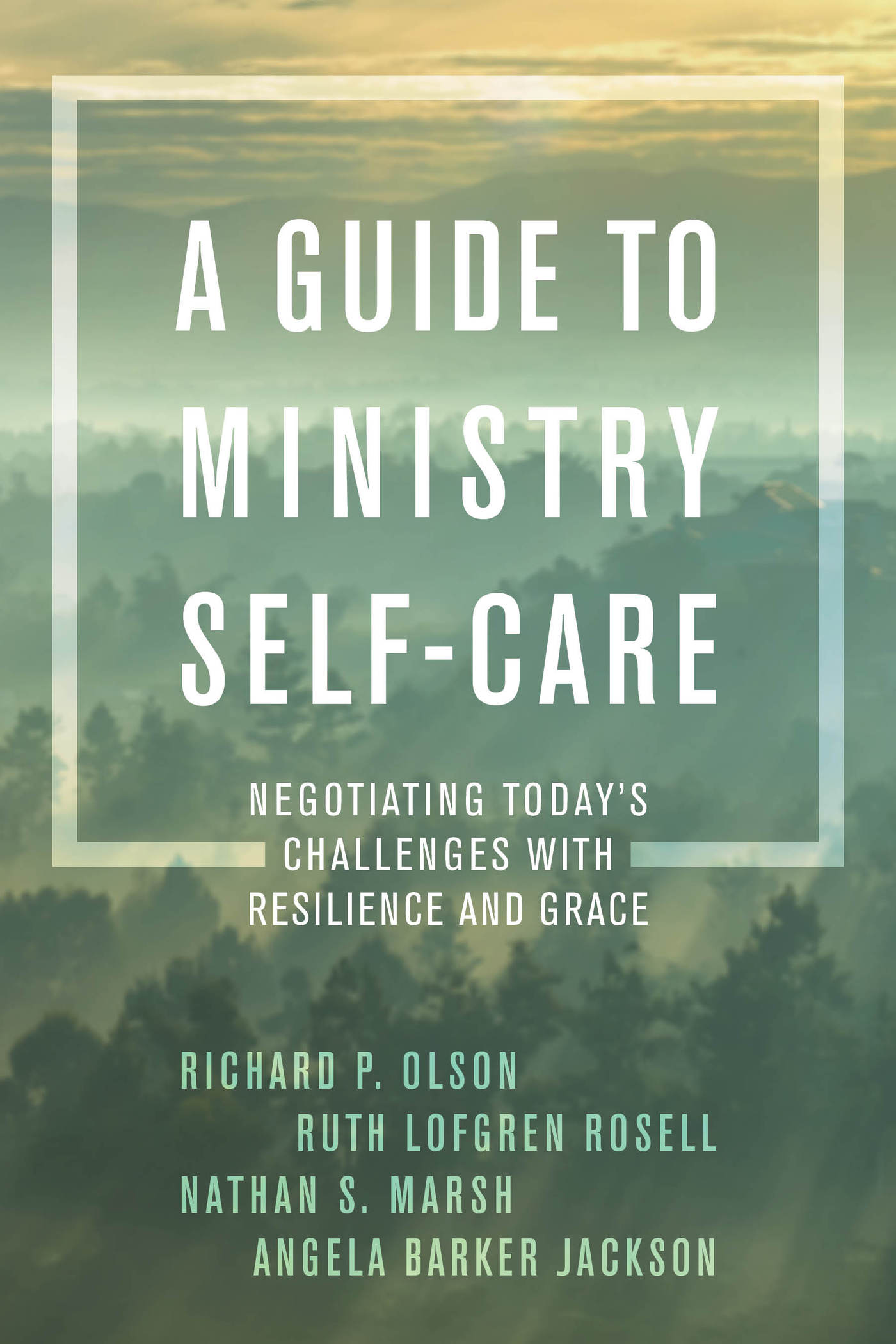A Guide to Ministry Self-Care
A Guide to Ministry Self-Care
Negotiating Todays Challenges with
Resilience and Grace
Richard P. Olson, Ruth Lofgren Rosell,
Nathan S. Marsh, and Angela Barker Jackson

An Alban Institute Book
ROWMAN & LITTLEFIELD
Lanham Boulder New York London

Published by Rowman & Littlefield
An imprint of The Rowman & Littlefield Publishing Group, Inc.
4501 Forbes Boulevard, Suite 200, Lanham, Maryland 20706
https://rowman.com
Unit A, Whitacre Mews, 26-34 Stannary Street, London SE11 4AB,
United Kingdom
Copyright 2018 by The Rowman & Littlefield Publishing Group, Inc.
All Bible quotations are from the NRSV, occasionally adapted (and so marked) for inclusive language, unless otherwise designated.
All rights reserved. No part of this book may be reproduced in any form or by any electronic or mechanical means, including information storage and retrieval systems, without written permission from the publisher, except by a reviewer who may quote passages in a review.
British Library Cataloguing in Publication Information Available
Library of Congress Cataloging-in-Publication Data
Names: Olson, Richard P., author.
Title: A guide to ministry self-care : negotiating todays challenges with resilience and grace / Richard P. Olson, Ruth Lofgren Rosell, Nathan S. Marsh, and Angela Barker Jackson.
Description: Lanham : Rowman & Littlefield, 2018. | Includes bibliographical references and index.
Identifiers: LCCN 2018012461 (print) | LCCN 2018027349 (ebook) | ISBN 9781538107997 (electronic) | ISBN 9781538107973 (cloth : alk. paper) | ISBN 9781538107980 (pbk. : alk. paper)
Subjects: LCSH: ClergyPsychology. | ClergyMental health. | Pastoral theology.
Classification: LCC BV4398 (ebook) | LCC BV4398 .O48 2018 (print) | DDC 248.8/92dc23
LC record available at https://lccn.loc.gov/2018012461
 TM The paper used in this publication meets the minimum requirements of American National Standard for Information Sciences Permanence of Paper for Printed Library Materials, ANSI/NISO Z39.48-1992.
TM The paper used in this publication meets the minimum requirements of American National Standard for Information Sciences Permanence of Paper for Printed Library Materials, ANSI/NISO Z39.48-1992.
Printed in the United States of America
By surviving passages of doubt and depression on
the vocational journey,
I have become clear about at least one thing:
self-care is never a selfish act
it is simply good stewardship of the only gift I have,
the gift I was put on earth to offer others.
Parker Palmer, Let Your Life Speak
Preface
Out of our experiencesand our frustrationswe offer you a guide to self-care that we hope is significant help for many religious leaders.
As we write, we are aware of the wide array of places where people serve and of the variety of ages and ethnicities, and therefore differing self-care issues, of people doing ministry. Furthermore, these are fast-changing and difficult times for many in ministry. Often there are diminishing numbers and shrinking resources. Self-care is much needed to strengthen and renew all who are living and serving with these many challenges.
A word about how this project came to befor a number of years, Richard Olson (Dick) taught courses first called Stress Management and then Self-Care and Stress Management at Central Baptist Theological Seminary. In recent years he team taught with colleague Ruth Rosell out of her many gifts in this subject.
This involved searching for the best resources on this subject. Though they found many wise and helpful books, none seemed to offer the breadth of self-care, nor did they address the varied and changing milieu in which religious leaders now work. Further, they didnt find resources that described the need to rethink these things in a changing world, changing religion, and evolving ministry.
Clergy in their varied ministries and students for ministry would benefit from a wider approach. And so Dick took this on as an early retirement projectto imagine a broad vision of clergy self-care, develop an outline, and find an interested publisher. He recruited his colleague Ruth to write a few chapters where her practice and teaching were particularly strong.
A bit later, we invited two doctor of ministry students, Angela Jackson (Angie) and Nathan Marsh (Nate), to join our writing team by contributing out of their doctoral work. Nate did his research on the issues in early ministry, and Angies dissertation topic was on financial self-care. Nate completed his doctoral work in 2017, and Angie finished hers in 2018.
Here is how we proceeded: One of us would write a draft of a chapter. Then the rest of us would read it and offer suggestions. The author would then revise, change, and add. Therefore the chapters at times will speak in the first-person pluralthis is what we think on a topic. When an individuals unique point of view or experience is mentioned, that persons name will be given in parentheses.
Angie was the primary author for chapter 11, as was Ruth for chapters 4 and 8. Nate contributed from his work and research in several places. All of us and several guests wrote parts of chapter 2. Ruth and Dick shared writing chapter 9, and Dick was the primary author for the other chapters.
Working as a team helps us speak to a wide spectrum of religious leaders. Dick has been a staff member or lead pastor in urban, suburban, university city, and rural pastorates as well as a college and seminary professor. Ruth has been pastor of a small rural church, coleader and church planter in a ministry with refugees, and associate minister at a suburban church. She also has worked as a psychiatric and medical nurse. Both Ruth and Dick have been church-based pastoral counselors. Angie has served as youth/children minister, homeless shelter director, and copastor in state capital cities, as well as solo pastor in a rural farming community. She also has been program director and coach in a theological school setting. Both Ruth and Angie are bi-vocational ministers, and both are partners in clergy marriages. Nate has ten years experience pastoring local congregations and, most recently, two years of experience as a region judicatory staff member for the American Baptist Churches of the Central Region. Our ages range from the thirties through the eighties. We represent three generations of ministers.
We hope our variety of age, gender, ministry experience, and specialties will give this book a broad scope. Still, our team has at least one limitation: all four of us are Euro-Americans. However, we have tried to fill that gap, at least a bit, by consulting with our African American and Asian American colleagues, friends, and students to learn of unique issues and common needs.
So welcome! Our prayer is that something in this book will touch your life and renew your ministry. We are in this together, and we are in it for the long haul.
Dick, Ruth, Angie, Nate
Part I
The Need for Self-Care
Chapter 1
Ministering during a Rummage Sale after a Perfect Storm
Everything nailed down is coming loose!
Angel, The Green Pastures
The present age is indeed filled with drastic changes and unprecedented challenges for the Christian enterprise and for those who offer ministry within it. Of course, from time immemorial, ministers have had more work and hazards than they could face in their own power. In the first century, Paul, after speaking of all the physical threats he had endured, added, And besides other things, I am under daily pressure because of my anxiety for all the churches (II Cor. 11:28). A few verses later, he speaks of his anxiety for the church to which he was writingthe Corinthian church, For I fear that when I come, I may find you not as I wish.... I fear that there may perhaps be quarreling, jealousy, anger, selfishness, slander, gossip, conceit, and disorder (II Cor. 12:20). With constant physical dangers and churches like this, first-century minister Paul certainly had his self-care challenges. Certainly, there have been other hard times for the church. Indeed, in the mid-twentieth century, Robert Phillips and Thomas McDill wrote, The minister of the Christian gospel has responded to a call to one of the most exacting and stressful vocations open to human beings.
Next page
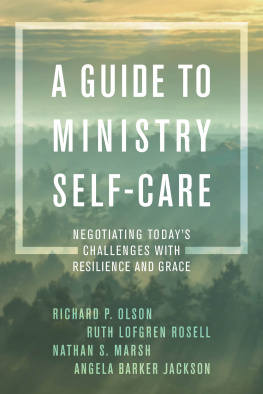
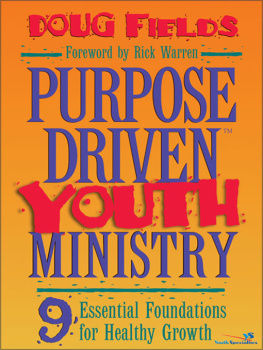

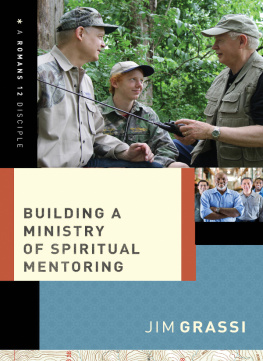
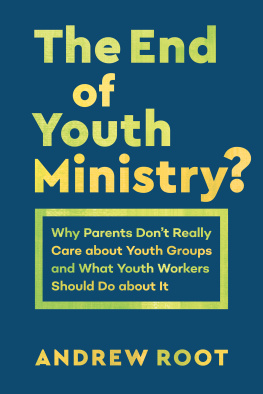
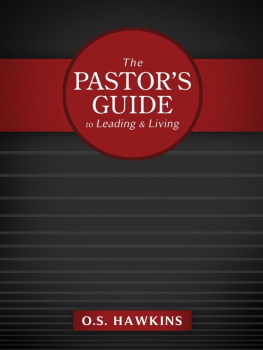
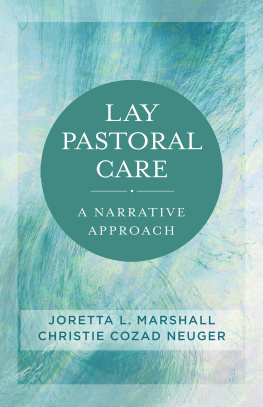
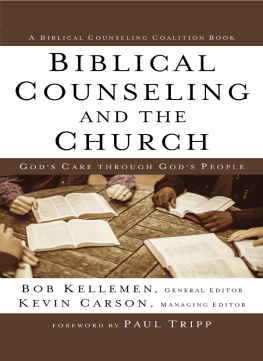
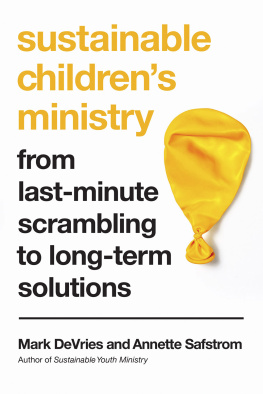
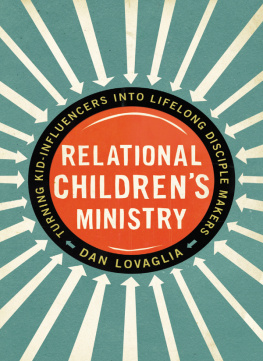
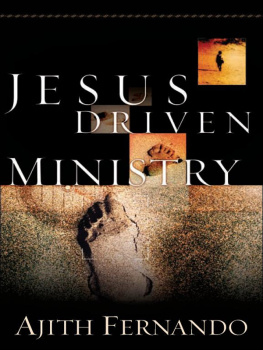
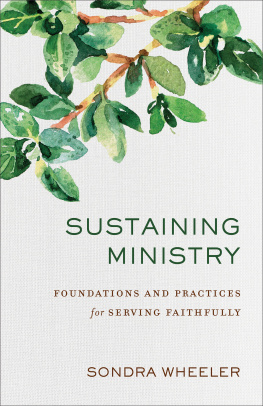
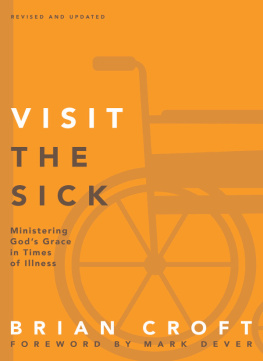


 TM The paper used in this publication meets the minimum requirements of American National Standard for Information Sciences Permanence of Paper for Printed Library Materials, ANSI/NISO Z39.48-1992.
TM The paper used in this publication meets the minimum requirements of American National Standard for Information Sciences Permanence of Paper for Printed Library Materials, ANSI/NISO Z39.48-1992.